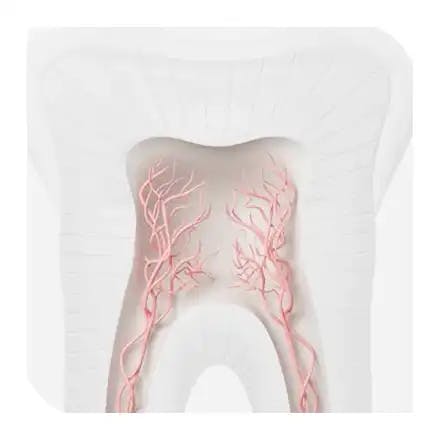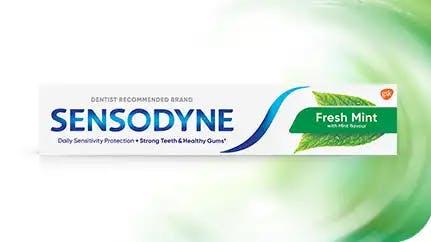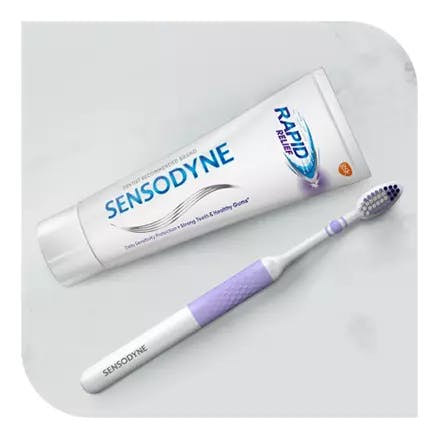Need to Talk About Bad Breath?
Here's How.
Bad breath. Halitosis. It’s a sensitive subject. This unpleasant, yet common condition can make anyone feel self-conscious, but when you know someone who clearly has bad breath, what’s the right or polite thing to do?
Whether you’re dating, are friends with or work with someone with bad breath, don’t assume the best approach is silence. A person may be completely unaware they even have halitosis. So, ask yourself, if the roles were reversed and you were unaware of your own bad breath, would you want someone to gently alert you?
If the answer is yes, or even maybe, there are kind, tactful ways to approach the topic. For a start, if you’re going to talk about bad breath, know what you’re talking about. Here’s useful information (to use yourself as well as share), along with ways of tackling the tricky subject of bad breath.

Smelly Breath? 5 Possible Causes
For a start, when it comes to talking about bad breath, it's important to get a better understanding of what could be causing breath to smell bad in the first place. Bad breath can be a temporary situation like morning breath, or a chronic problem.
1. Not looking after teeth and gums properly
Plaque bacteria is constantly building up on, around and in-between your teeth and this can be responsible for halitosis. As these bacteria breaks down particles of food in your mouth it can release an unpleasant smelling gas causing your breath to smell bad.
The best way to help prevent this is to adopt a good oral health routine: brush twice a day with a fluoride toothpaste, like Sensodyne Fresh Mint or Sensodyne Fresh Gel, and floss to remove plaque and trapped food from those hard to reach places in between your teeth.
2. Specific foods or drinks are causing a problem
Eating foods with a strong odour, such as garlic, onions and spices, or drinking coffee, can temporarily make breath smell. Additionally, sugary foods and drinks can increase the amount of bacteria in the mouth.
3. Smoking or chewing tobacco
Smoking cigarettes, pipes, or chewing tobacco can make your breath smell bad. It can also stain teeth and may put you at higher risk of developing gum problems.
4. Crash diets
Fasting, crash or low carb diets can have the side effect of causing bad breath. This is because as the body is forced to break down fat it produces chemicals called ketones. These are released into your breath making it smell bad.
5. Medical conditions
In rare cases, some medical conditions can make your breath smell bad. Gastrointestinal conditions, throat and chest infections can also cause bad breath. Diabetes is sometimes associated with halitosis.
How to approach the topic of bad breath
Step 1: Let the golden rule be your guide
Treating others as you would wish to be treated is always a good game plan. Kindness is key to telling someone they have bad breath.
Ask yourself: “am I the right person to be delivering this news?” If the person isn’t a good friend, loved one or trusted colleague, the topic is probably too personal and would only offend.
Step 2: Be discrete
Pull the person aside to a private place. Take care to ensure no one else is within earshot.
Step 3: Test the waters
You could start by casually asking something along the lines of, “If you had something on your teeth, or toilet paper stuck to your shoe, or something like that, would you want someone to tell you?”
The reply may not be straightforward (“I don’t know. Why?”), so be mindful of tone and body language when deciding if you’re going to move forward.
Step 4: Be direct, but be gentle
As this is a touchy topic that’s bound to cause embarrassment. Keep it short and keep it soft. Ideas include, “It’s not a big deal, but you may have eaten something at lunch,” or “I think you may have a little bit of morning breath.”
You want to be tactful while also being honest. Use phrases like “I‘ve noticed” or “I’ve also had this problem,” to be relatable, which can go a long way to reducing the embarrassment.
Step 5: Be helpful
Offer help by suggesting a couple of basic tips or oral health care products.
4 ways to keep your breath fresh
As you already know, prevention is better than cure. Here’s how to ensure your breath doesn’t turn heads for the wrong reason.
- Brush twice daily.
- Choose a fluoride toothpaste like Fresh Gel that can remove the build-up of plaque and bacteria and also give you a long lasting fresh breath feeling.
- Drink plenty of water.
- Don’t smoke.

Two toothpastes to leave your breath feeling fresh
Sensodyne Fresh Gel
- Fresh taste
- Everyday sensitivity protection
- Leaves your whole mouth feeling fresh
- Provides a fresh breath feeling
Sensodyne Fresh Mint
- Leaves your breath feeling fresh
- Everyday sensitivity protection
- With mint flavour
- Keeps your mouth feeling fresh and clean















